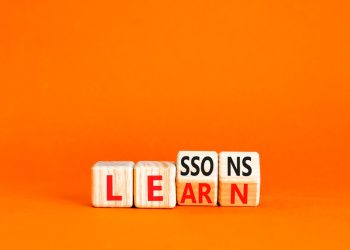After a machinery breakdown led to a collision, CHIRP analyzes the incident, explaining the circumstances that led to it and provides lessons learned for the future.
The incident
While proceeding for berthing, a tanker experienced main engine failure and collided with a barge that was berthed outboard of another vessel moored alongside a breakwater.
Prior to berthing, pre-departure tests were carried out following company procedures before embarking the pilot and all were found satisfactory. Weather conditions at the time of the incident were light wind, a calm sea with no swell, and good visibility. The bridge was manned by the master, second officer, lookout, helmsman and pilot. ECDIS was used as the primary means of navigation. The vessel’s draught was 10.10m even keel and was fully loaded with gas oil.
As the vessel entered the breakwater at a speed of 8.3 knots and was swinging to starboard the main engine was stopped. The pilot ordered hard to port and dead slow ahead as the vessel continued to swing to starboard, but the main engine failed to respond. The vessel’s speed was now 7.2 knots.
The pilot ordered bow thruster full to port, although the master advised it would be ineffective at speeds over 6 knots. Vessel speed at this time was 6.5 knots and the pilot ordered an anchor be readied to let go while the engine control was transferred to the Engine Control Room (ECR). Thereafter engine movements were attempted from the ECR, but all attempts failed.
The vessel’s speed was still above 5 knots, so the pilot ordered that both anchors be let go. The vessel speed had reduced to 4.5 knots when it contacted a barge that had been berthed outboard of another.
Engine control was eventually transferred to the emergency engine control station allowing the engine to be used. Two tugs were dispatched to assist, and the pilot directed that both anchors be weighed. Engine control was transferred back to the bridge and after confirmatory checks the vessel proceeded to the berth where it safely moored.
A detailed inspection was carried out by the ship’s staff, followed later by an inspection by class. Non-penetrating hull damage was identified, with significant indents and minor deformation to internal strength members that required repairs.
The investigation revealed that maintenance work conducted 6 days before on the engine control system had not been properly completed nor had it been inspected afterwards. The red locking pin (see photos below) had not been correctly secured back into position and during manoeuvring it had shaken loose due to vibration. This activated the emergency manoeuvring system which over-rode both the bridge and engine room control systems.
The emergency manoeuvring system located on the side of the engine is fitted with a locking arrangement which under normal conditions rests firmly inside the grove indicated in the photos below.
The investigation revealed that the direct cause of this incident was the disengagement of the emergency manoeuvring system’s locking arrangement.
The root causes for this incident were found to be a lack of understanding of the risks by the engineering officers carrying out the checks, which were not overseen by a supervising officer – a procedural requirement that is stated in the SMS procedures for working on critical equipment. It is likely therefore that the engineering officers failed to appreciate the criticality and impact of the locking system.
The investigation revealed that the navigation had been entirely left to the pilot once they had embarked, and there was little evidence of their integration into the bridge team or monitoring of their actions. The investigation report directed that the pre-arrival and departure checklists be immediately amended to include physical verification of the emergency manoeuvring system’s locking arrangement. Additionally, an independent navigational and engine room audit was arranged.
The investigator also proposed that the master be psychometrically assessed to determine their suitability for command and that the chief engineer be brought to the office for a thorough debriefing on the importance of maintenance of critical equipment. The management company agreed with these proposals.
Probable cause
Critical equipment defined in the company SMS must be inspected on completion of any maintenance by a supervising officer. Crucially, single points of failure must also be checked as part of routine pre-arrival and predeparture checks
says CHIRP, noting that in this case, there appears to be a fundamental design flaw with this equipment, given that it can be vibrated out of its secured position when the engine is running.
It is the master’s responsibility to ensure that there is an effective bridge team working with the pilot. A master should develop communication and leadership skills as part of the natural progression to the rank of master.
It is important that once promoted to master these skills are continually improved. The bridge team must never leave the navigation of the vessel to the pilot.
Human factors relating to this report
- Local Practices: Navigational risk assessments should include the risk of engine or control failures and consider whether tugs on stand-by would be an appropriate control measure. Ordering tugs as a precautionary measure is always cheaper than the cost of repairs! Does your crew regularly practice breakdown drills and transferring control between the bridge and ECR and switching between the bridge and emergency manoeuvring systems?
- Situational Awareness: Letting go an anchor while still making way incurs significant risk of damaging or holing the bow near or below the waterline and is an emergency measure of last resort. With no other immediate option, would you have followed this course of action given the situation?
- Culture: Does work on critical equipment on your ship involve a senior officer checking the work? Do you have the confidence to insist that your work is checked on completion if for some reason it is not carried out?
- Teamwork: It is vital to integrate the pilot into the bridge team and to provide support while they have the conn. Why was the pilot left to conn the vessel without support from the bridge team? Is this a training gap?
- Communications: The use of ‘closed loop’ communications is strongly encouraged, especially when working with an embarked pilot who may be unfamiliar
with on board procedures. Does your bridge team adequately communicate and support the pilot in all phases of pilotage operations? - Capability: Is your selection process for senior positions within your company thorough enough to ensure that people with the right level of proficiency and leadership are selected for senior ranks? What process does your company use to ensure that the right person is selected? Is this a training gap?































































